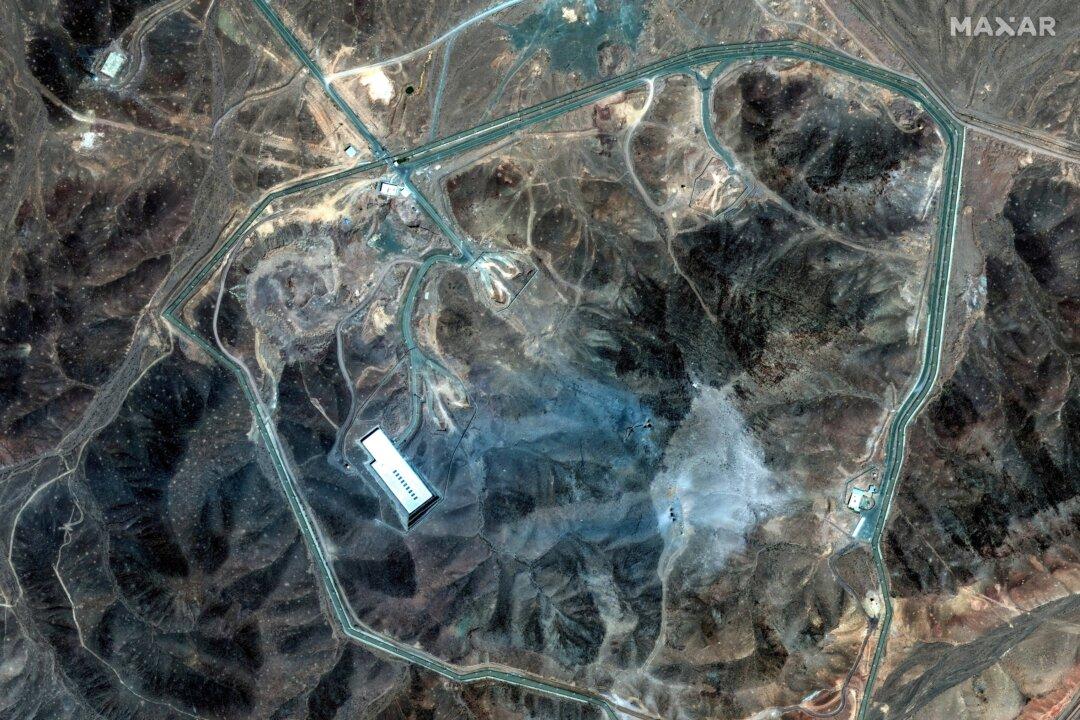Since late May, a wave of strikes and protests has erupted across China, highlighting growing tensions between workers and employers, homebuyers and irresponsible developers, as well as mounting public frustration amid a deepening economic slowdown.
One of the high-profile incidents involves a multi-day strike at a Yunda Express distribution center in Chengdu, the capital of Sichuan Province in southwest China.
On May 30, hundreds of workers at the facility walked off the job to protest the company’s decision to relocate the center to Ziyang city—more than 62 miles away—without offering relocation compensation. Striking employees blocked entry and exit points to halt vehicle traffic.
Police intervened on June 2 to break up the protest, with social media reports saying that some workers were physically assaulted during the clampdown.
Workers said in videos and posts circulating on Chinese social media platforms such as Douyin and Xiaohongshu (RedNote) that the new site is not only poorly equipped, but also far from urban areas. As a result, drivers face long wait times for shipments, pushing up costs and prompting many to quit.
Workers have accused the company of violating China’s Labor Contract Law by denying relocation compensation and reasonable resettlement arrangements in line with China’s labor laws.
A female employee taking part in the strike told the Chinese-language edition of The Epoch Times, “Worker representatives are trying to negotiate, but the company is simply ignoring ... demands.”
A staff member at the distribution center declined to be interviewed when contacted by The Epoch Times, saying only that “negotiations are still ongoing” before hanging up.
On the same day as the Chengdu courier strike, workers at Ligao Lighting Co. in Dongguan, Guangdong Province, staged a walkout amid rumors that company executives had fled. Employees told The Epoch Times that the company abruptly announced a 15-day shutdown without compensation, fueling fears of wage arrears.
The Epoch Times’ repeated calls to the company went unanswered.
Public Anger Rises Over Stalled Projects, Forced Demolitions
In several provinces, some homeowners and small business owners also staged protests targeting local governments, reflecting widespread frustration and a growing lack of confidence in the Chinese Communist Party (CCP).Homeowners said construction has been suspended for an extended period and that both the developer and local authorities have failed to respond to concerns about project delivery.
Under China’s presale system, homebuyers make down payments and begin mortgage payments on homes that are still under construction. If a project is delayed or abandoned, buyers remain financially obligated—losing both their money and the promised property.
In Xianyang, in northern China’s Shaanxi Province, homeowners of the stalled Chenyue project gathered at a local petition office to protest the halted construction and accused the government of misusing project funds. Several protesters were reportedly detained by police.
Expert: Cost-Cutting and Weak Oversight Driving Unrest
Independent labor researcher Yue Ming (who used a pseudonym out of fear of retaliation) told The Epoch Times that the surge in labor disputes stems from long-standing structural issues: Many companies ignore legal obligations in their cost-cutting efforts, while local governments fail to provide proper oversight.“When businesses face financial pressure, they’re still legally required to protect workers’ rights,” he said. “However, local officials often side with employers and suppress workers’ demands. That’s not stabilizing society—it’s turning it into a pressure cooker.”
A rights advocate surnamed Li from Linyi in Shandong Province told The Epoch Times that many companies are in survival mode. His wife works at a publicly listed company that was sold in 2024; now, she alternates between working one day and resting the next. Li’s son, who works polishing semiconductor components in a chip factory in Anhui, is overworked and underpaid.
“The hours are long; the pay is poor,“ he said. ”It’s just enough to scrape by.”
A resident of Taixing, Jiangsu Province, surnamed Liu, said: “Factory closures and unpaid wages have become the norm. The government and the unions do nothing.”
Since 2008, the CCP has classified statistics on mass incidents as a state secret, and no official statistics are publicly available. However, the growing volume of protest-related videos posted online—many involving unpaid wages or forced demolitions—suggests that social unrest is intensifying.
In an interview with The Epoch Times, Liu Hong (who used a pseudonym out of fear of retaliation), who runs a grassroots nongovernmental organization in Beijing, said the government is clamping down on protests rather than addressing the root causes.
“They target those who stand up for their rights, while lawbreaking companies go unpunished,” he said. “That’s not maintaining social order—it’s forcing society toward the brink.”
The Epoch Times made repeated attempts to contact the companies and local government offices involved, but none responded.







